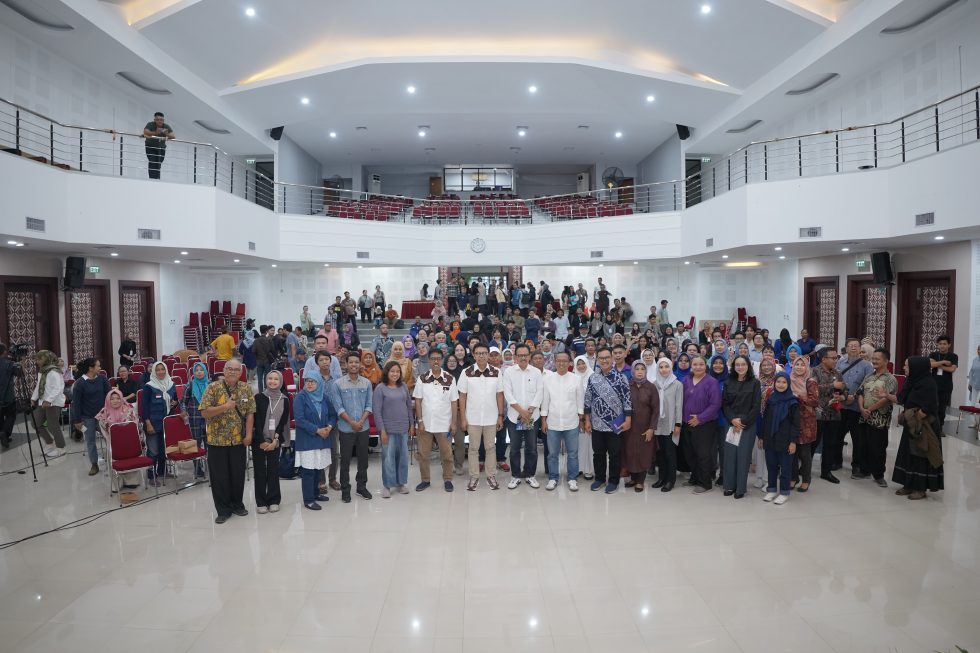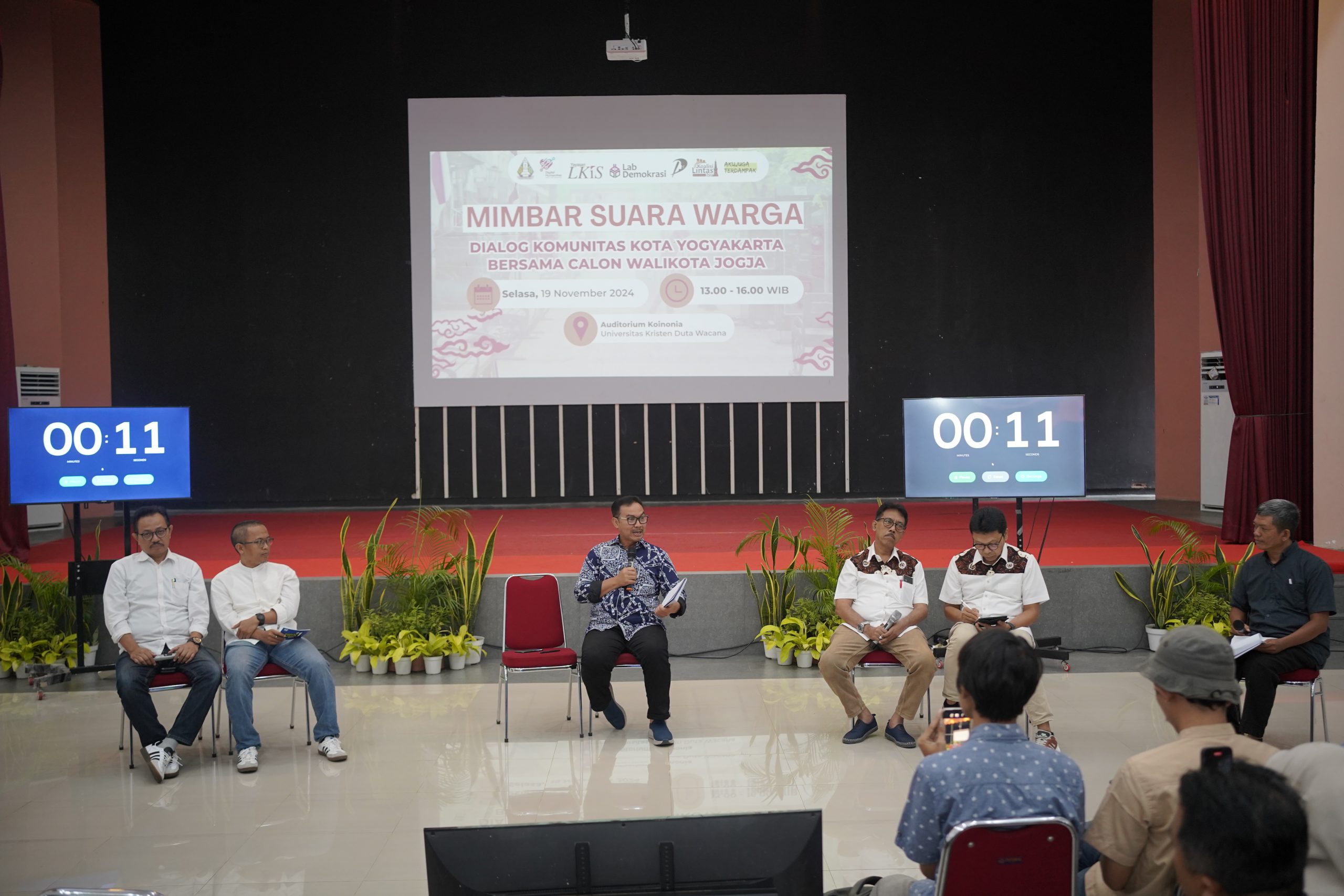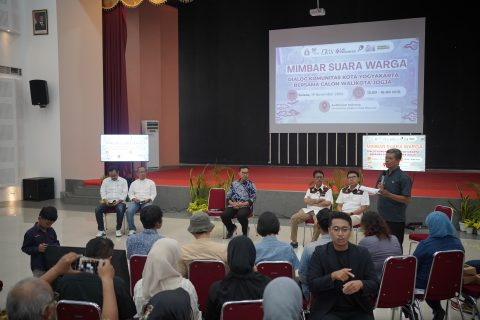The 2024 Yogyakarta City Elections (Pilkada) present a pivotal opportunity for residents to voice their aspirations and shape the city’s future. However, the democratic process continues to grapple with challenges such as transactional politics, money-based patron-client relationships, and pork-barrel practices that undermine governance genuinely focused on public interest.
To promote informed and rational decision-making among voters, the Humanities Studies Program at Universitas Kristen Duta Wacana (UKDW) Yogyakarta organized a Citizens’ Forum in collaboration with Koalisi Lintas Isu (Cross-Issue Coalition), Yayasan Lembaga Kajian Islam dan Sosial (Foundation for Islamic and Social Studies, LKiS), Deliberaksi, and Lab Demokrasi (Democracy Lab).
Titled “City of Yogyakarta Community Dialogue with Mayoral Candidates”, the event was held on Tuesday, November 19, 2024, at the Koinonia Auditorium, UKDW.
The forum provided a platform for mayoral candidates to engage with grassroots communities and discuss critical issues. Dra. Endah Setyowati, M.Si., M.A., a lecturer in the Humanities Studies Program and Chair of the Organizing Committee, emphasized the forum’s objective of fostering open dialogue between the candidates and the public. “This is an opportunity to align visions and delve into the community’s aspirations,” she said.
The discussions focused on five key topics crucial to Yogyakarta’s future: inclusivity, employment, education, waste management, and urban housing. A highlight of the event was the presentation of a policy brief—an in-depth analysis of these pressing issues—to guide candidates in shaping their future policies.
The Yogyakarta Pilkada features three candidate pairs: Drs. Heroe Poerwadi, M.A., and Sri Widya Supena; Dr. H. Hasto Wardoyo, Sp.Og (K), and Wawan Hermawan, S.E., M.M.; Drs. Muhammad Afnan Hadikusumo and Singgih Raharjo, S.H., M.Ed. As part of its commitment to education and neutrality, UKDW aims to provide a platform for constructive discourse. The event encouraged both residents and students to become responsible, informed voters and active contributors to the democratic process.
UKDW’s efforts also sought to strengthen collaboration among civil society organizations, communities, academics, election organizers, and non-governmental organizations. By bridging the gap between candidates and citizens, the forum fostered an environment of mutual understanding, enabling candidates to better grasp the needs and aspirations of the community.
Through this initiative, UKDW hopes to inspire greater public participation in a transparent and programmatic political process, paving the way for a governance model that prioritizes inclusivity and public welfare. [humasukdw/trans.drr]


